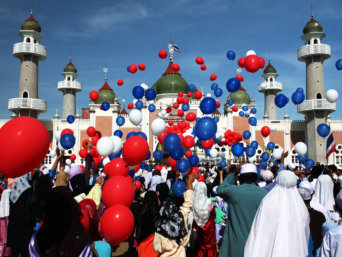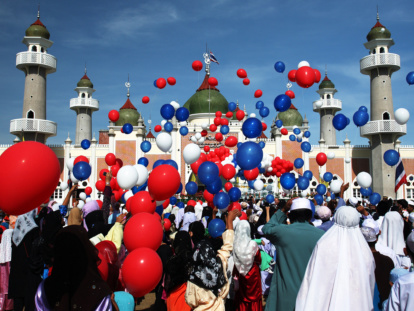- About
- Topics
- Picks
- Audio
- Story
- In-Depth
- Opinion
- News
- Donate
- Signup for our newsletterOur Editors' Best Picks.Send
Read, Debate: Engage.
| located: | Pakistan |
|---|---|
| editor: | Shadi Khan Saif |
On the Muslim holy festival of Eid this week – that usually sees hugging-sprees and sharing sweets and love – many civilians in Karachi, Pakistan’s biggest city, had no water to shower and in some places not enough to even drink.
The serious water shortage facing Pakistan has not reached this tipping point as a result of any abrupt changes in water distribution arrangements nor any other sudden natural causes. The statistics leading to this calamity in the mega city of close to 20 million dwellers are quite longstanding; the ringing alarm bells have been left ignored for years.
The port city needs 1.1 billion gallons of water on a daily basis, yet currently it is only receiving roughly half of that via the Karachi Water and Sewerage Board (KWSB), while up to 40 percent of the supply comes from largely illegal and some legal water-tanker trucks that charge up to $25 for one trip. Together with the impact of climate change and a staggering population growth of 2%, Pakistan is now on the brink of a famine-like situation, where even the supposedly developed cities like Karachi (once capital of the country), are resembling drought-hit corners of the world.
On this Eid, the country’s widening gap between the poor and the rich – combined with an absurd water management regime – has left a large chunk of the population either in the mercy of the water-tanker mafia or with no alternative options but to bear the threatening water shortage alone.
As the country prepared for significant elections, set to dictate the tone and agenda for years to come, not a single political party in the main arena seems to be approaching the issue of water shortages with the seriousness it deserves. It is at this crossroads that the civil society – especially the media – must adhere to its responsibility of social awakening and bring this issue to the forefront.
Appropriate funding and smart management of water by the winning party can turn things round for Pakistan. If this is not incorporated into the campaigns – and into the consciousness of public services – Karachi might as well become yet another Johannesburg or Cape Town, with much worst ways and means ahead of it in the face of an acute water shortage.

